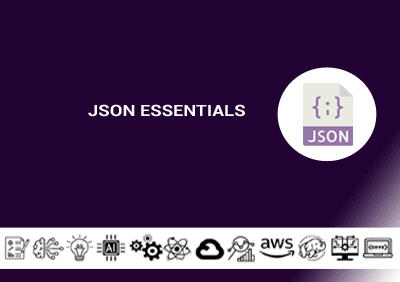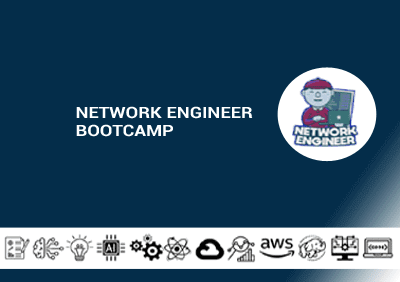- Overview
- Prerequisites
- Audience
- Curriculum
Description:
This one-day training is designed to introduce Human Resource professionals to the transformative power of Generative AI in enhancing HR operations, improving talent management, streamlining recruitment, and fostering better employee engagement. Through hands-on exercises and real-world examples, attendees will learn how to leverage AI tools to automate repetitive tasks, make data-driven decisions, and enhance the overall employee experience.
By the end of the day, HR professionals will be equipped with a solid understanding of Generative AI's applications in HR and practical insights on integrating these technologies into their HR workflows.
Duration: 2 Days
Course Code: BDT392
Learning Objectives:
By the end of this one-day course, participants will be able to:
- Understand Generative AI and its role in the HR domain, including its core technologies (NLP, machine learning, and automation).
- Apply Generative AI to Recruitment: Learn how AI can assist in sourcing candidates, screening resumes, and conducting interviews.
- Automate Administrative HR Tasks: Use AI to automate repetitive tasks like payroll processing, employee data management, and reporting.
- Enhance Employee Engagement and Retention: Leverage AI tools to track employee sentiment, manage performance reviews, and foster a personalized experience.
- Use AI in Learning and Development: Explore how AI can suggest personalized learning paths for employees and optimize training programs.
- Understand Ethical Considerations: Address potential biases and ethical issues when using AI in HR.
- Familiarity with HR processes such as recruitment, onboarding, performance management, and employee development.Comfort with using HR software platforms like Applicant Tracking Systems (ATS), Learning Management Systems (LMS), and employee databases. No prior experience with AI required
- This course is designed for HR Managers and Directors, Talent Acquisition Specialists, HR Analysts, Employee Experience Managers, Learning & Development Professionals, HR Consultants, and HR Technology Implementers, providing them with the knowledge and tools to effectively leverage Generative AI in transforming HR processes, enhancing recruitment, automating administrative tasks, and improving employee engagement and development.
Course Outline:
Module 1: Introduction to Generative AI for HR
- What is Generative AI?
- Core technologies: NLP, machine learning, and automation
- The difference between traditional AI and Generative AI
- How AI is transforming HR practices
- Key Benefits of Generative AI in HR
- Automation, efficiency, and decision-making
- Case studies of AI adoption in HR (e.g., Unilever, IBM, SAP)
- Real-world examples of HR AI tools (chatbots, resume screening, and performance management)
Module 2: AI in Recruitment & Talent Acquisition
- AI for Sourcing Candidates
- How AI-driven tools search through job boards, social media, and internal databases to find qualified candidates
- Tools: HireVue, Pymetrics, Ideal
- Resume Screening and Shortlisting
- Using AI to analyze resumes and match candidates to job descriptions based on skills and experience
- Benefits: Speed, unbiased screening, and enhanced candidate fit
- Ethical considerations: Addressing bias in recruitment models
- AI-powered Interviewing
- Chatbots and video interview AI tools (e.g., InterviewBot, HireVue AI Interviews)
- How Generative AI conducts preliminary interviews and provides candidate assessments
- Reducing recruiter workload and improving candidate experience
Module 3: Automating HR Admin and Processes
- Automating Routine HR Tasks
- Payroll processing, time-off management, and benefits administration with AI
- Reducing human error and enhancing operational efficiency
- Case Study: Zenefits, ADP
- Employee Data Management and Reporting
- Using AI to automate employee record-keeping and compliance reporting
- AI tools for real-time HR analytics (e.g., Workday, PeopleSoft)
- Creating dynamic reports and dashboards with AI (e.g., AI in HR analytics)
Module 4: Enhancing Employee Engagement with AI
- AI for Employee Sentiment Analysis
- Leveraging AI to monitor employee sentiment through surveys, feedback, and social media
- Tools like CultureAmp, Qualtrics for real-time sentiment tracking
- How AI provides insights into team morale, motivation, and retention risks
- Personalized Employee Development
- Using AI to recommend learning programs and career development paths
- Tools: Cornerstone OnDemand, Docebo
- AI for Employee Retention
- Predictive analytics for identifying flight risks and taking proactive steps
- How AI can inform retention strategies and improve workplace culture
Module 5: Leveraging AI for Learning and Development
- AI in Employee Training and Upskilling
- Personalized learning paths powered by AI (e.g., LinkedIn Learning, EdCast)
- AI for skill gap analysis and recommending training programs
- Case studies of AI in corporate learning: How companies are using AI to increase learning engagement and ROI
- AI for Knowledge Management
- Using AI to manage and organize internal knowledge (e.g., chatbots for FAQs, internal AI assistants for documentation)
- How AI enhances learning content creation and adaptation
Module 6: Ethical Considerations and Best Practices
- Ethical AI Use in HR
- Addressing biases in AI models (e.g., gender, race, and age biases)
- Ensuring fairness and transparency in AI-driven HR practices
- Regulatory compliance and privacy concerns in AI recruitment and data processing
- Data Security and Privacy in AI
- How AI interacts with sensitive employee data and ensuring compliance with GDPR, CCPA, etc.
- Protecting employee privacy while using AI for performance tracking, feedback, and recruitment
- Best Practices for Implementing AI in HR
- How to evaluate AI tools for your organization
- Integrating AI with existing HR systems
- Training your HR team to use AI effectively
Training material provided: Yes (Digital format)



